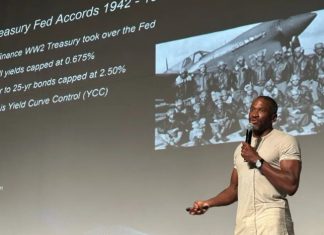
A Korean-origin project called “KimSwap” is raising alarms over the unchecked issuance and circulation of a de facto Korean won-backed stablecoin, KRWO. Despite operating outside any formal financial framework, KRWO has already reached tens of millions in circulation and is freely tradable on decentralized exchanges, entirely beyond the reach of government oversight.
KRWO is issued through a voucher-based system where users purchase “Open Vouchers” with Korean won and receive KRWO tokens in a 1:1 ratio. While it mimics the structure of fiat currency, it lacks any legal or regulatory backing. Currently, over 348 million KRWO tokens are in circulation, primarily on the Kaia and Binance blockchains.
What makes this particularly concerning is KimSwap’s mechanism that allows users to convert vouchers directly into USDT and transfer it to Binance wallets—without ever going through a Korean exchange. This bypasses travel rule compliance and creates a virtually untraceable cross-border financial route, raising serious concerns about potential misuse for money laundering, illegal gambling, and tax evasion.
But KimSwap isn’t an isolated case. According to financial authorities, over ₩46 trillion worth of USDT and USDC has been moved out of Korean exchanges in just five months. While much of this is believed to involve legitimate overseas trading, insiders suggest that stablecoins are being used by small businesses and wholesale markets for undeclared imports and off-the-books transactions.
Meanwhile, global developments are accelerating. U.S.-based Circle recently launched the Circle Payments Network (CPN), enabling real-time global settlements using USDC and EURC—without intermediaries like SWIFT or banks. The network has already onboarded 28 global fintech and banking partners.
Yet, South Korea was absent from the table. With no legal basis for stablecoins, no Korean bank or tech firm was included in the CPN initiative. Experts warn that the country is not only failing to stop illegal usage but also missing its chance to join the next-generation financial infrastructure.
In the face of this dual crisis—unchecked illicit use on one side, and strategic exclusion on the other—South Korea’s policy vacuum risks leaving it isolated in a fast-changing global financial system.






